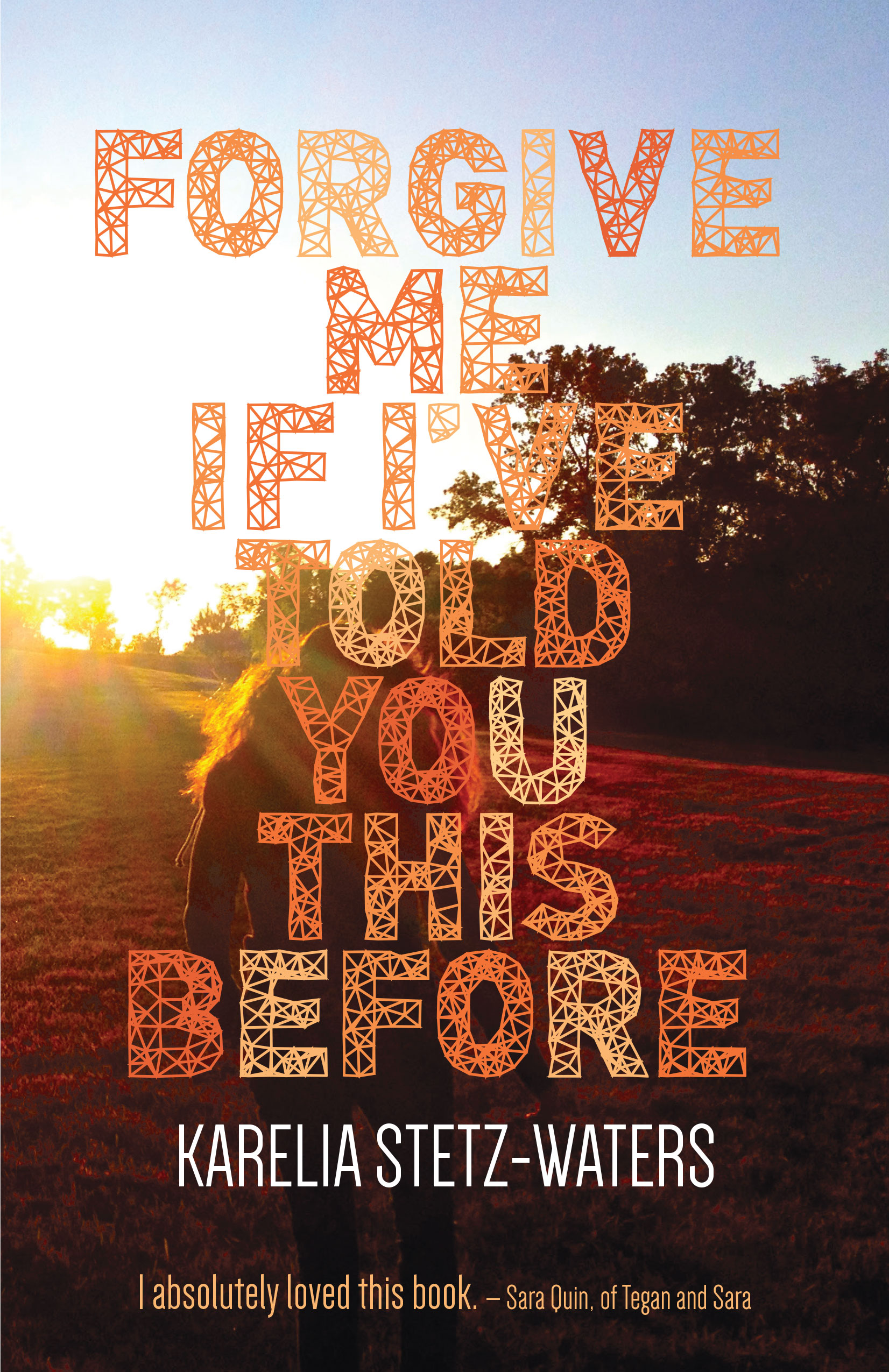Everyone has some sort of idea about what goes into producing a published book. With great excitement, I will explain one aspect of the “how” with respect to a current working Ooligan title called Forgive Me If I’ve Told You This Before, coming out this fall. Here, you’ll learn why a book’s author is becoming more crucial during the leap from manuscript to bound book.
An author’s importance results from the fact that the publishing process is not just built around cooperation and collaboration with an author. Better marketing and advertising for a book requires a complete understanding of an author. Not knowing hinders overall popularity and reach of a book title. For example, Forgive Me has two websites catering to two different audiences. Ooligan Press has a page all about this title here and our author, Karelia Stetz-Waters, has a page as well.
Not knowing where to advertise and who to market toward means that all creative work put into creating the physical product could be misdirected. An author is influential given that their brand of marketing and advertising is based upon an author’s life, from their personal contacts and social interactions to their location. Knowing the latter means spreading word to areas that an author lives or has lived in, and the places that are frequented most often among those.
Based on my limited experience, it seems easy to get lost. At times, I’m focusing on the wrong aspects and aiming the reach of Forgive Me in the wrong direction. I had to find a compass to keep me on track, and to do so, I created a list of bullet points about the author and her situations and experiences to help me find relevant outlets. For example, Karelia wrote Forgive Me based on her experiences. Though this title is not a biography in the truest sense, keeping a list of facts about Karelia keeps me focused on finding the right way to cater to a targeted demographic. Knowing our author makes it easier to advertise and results in a more extensive reach in marketing outlets like event venues, social media, and print or radio.
I did not immediately ask who our author was, and it initially gave me pains when compiling a list of book awards. Book awards are another way to market a book. If we win or receive notable mentions, we get extra attention. Some require the author to have a certain background or experience as a writer, and in my initial search, I had little to go on. I did not know where Karelia lived or the colleges she graduated from. I knew nothing whatsoever about her life activities and the importance of her being a faculty member in a writer’s association called the Golden Crown Literary Society. I eventually got the hint, and because of that, I could do more than simply base my search on the specific genres under which the title is placed.
A publishing company like Ooligan requires a team, and while working together is essential, so is knowing the author in order to market and spread the word about a new book title. I may not have known this at first, and I still have many things to learn yet, but I suggest getting to know who the author is as a first priority. I have gone so far as to ask Karelia herself about the way this information flow between author and publisher works when publishing a book in general, and her response put things into perspective. She told me:
As a writer, I try to remember that I am working on a need-to-know basis. I need to know what my editors expect, when the book is coming out, how to best combine my marketing efforts with my publishers’ marketing efforts, etc.
Karelia points out that marketing is not solely the effort of the publisher, but also requires her efforts and help. Working on a need-to-know basis reflects that on each new step at Ooligan, there might be more information to be had, and if I understand right, further shows that marketing capitalizes on who the author is and what the author does or has done.

